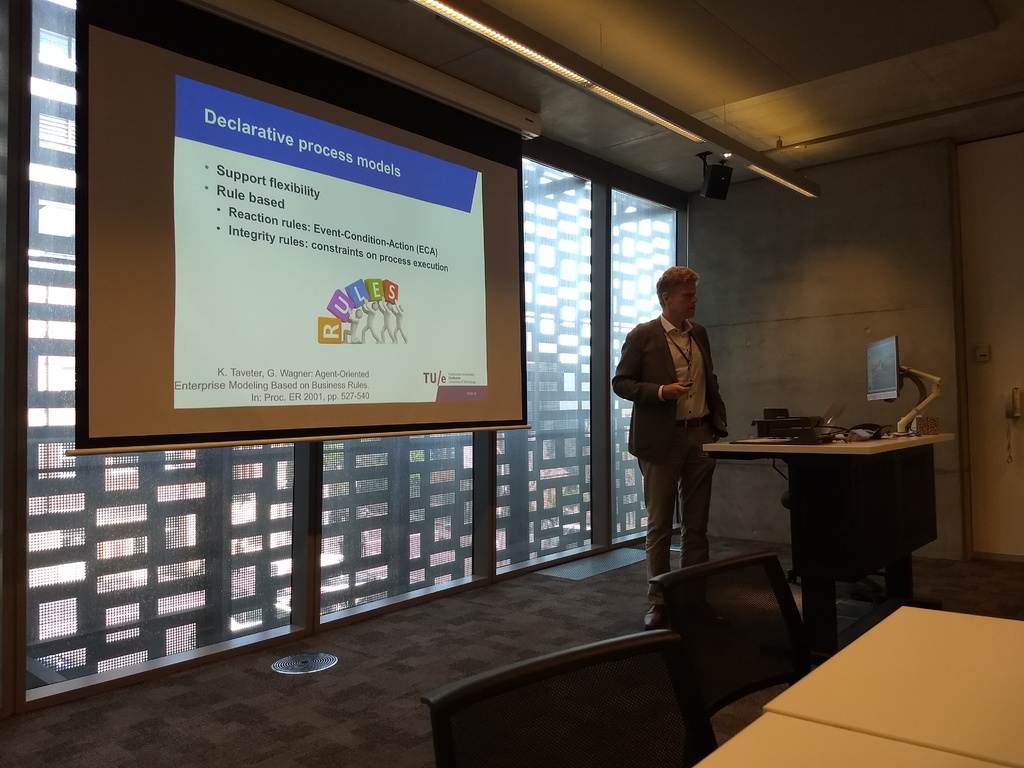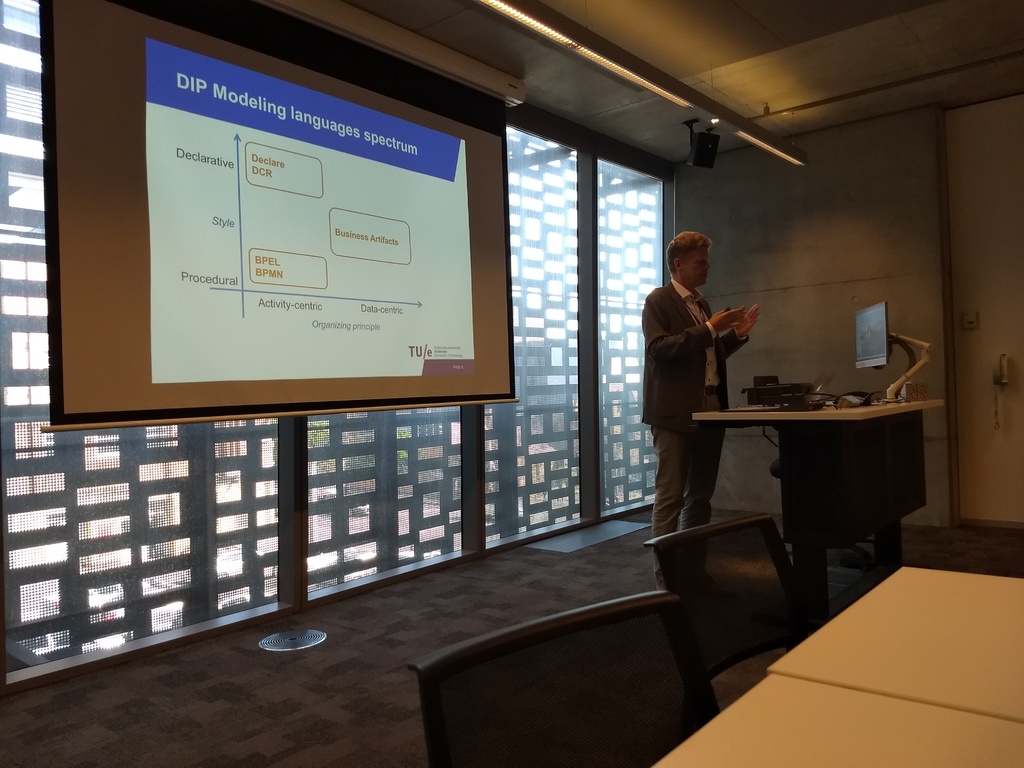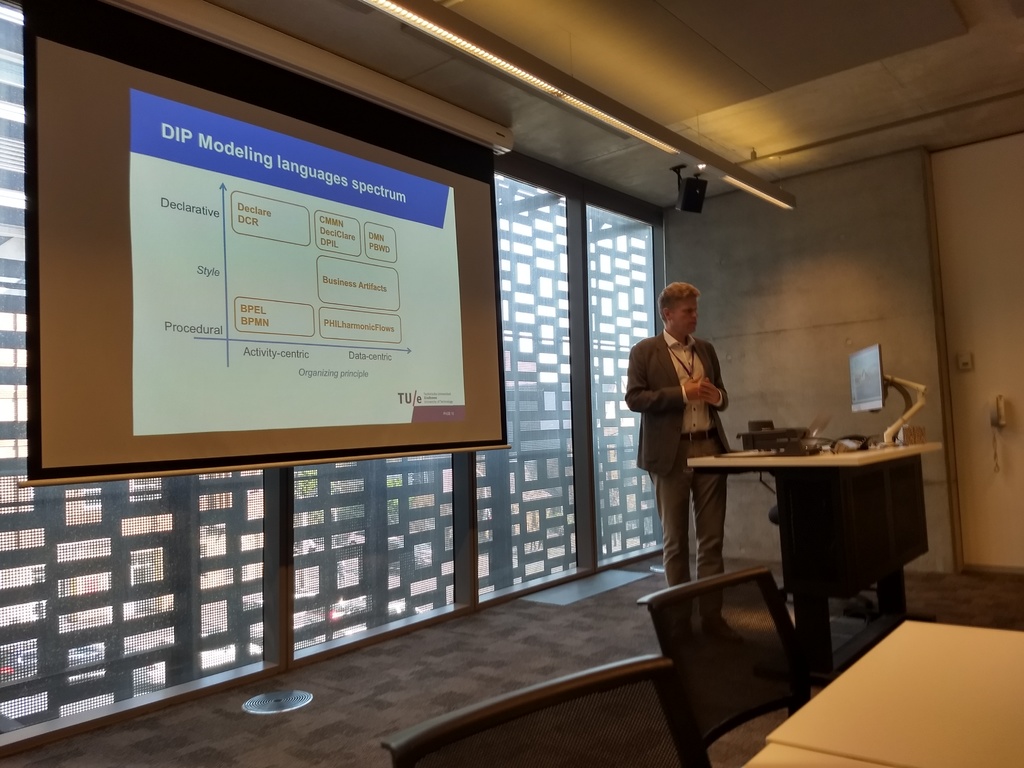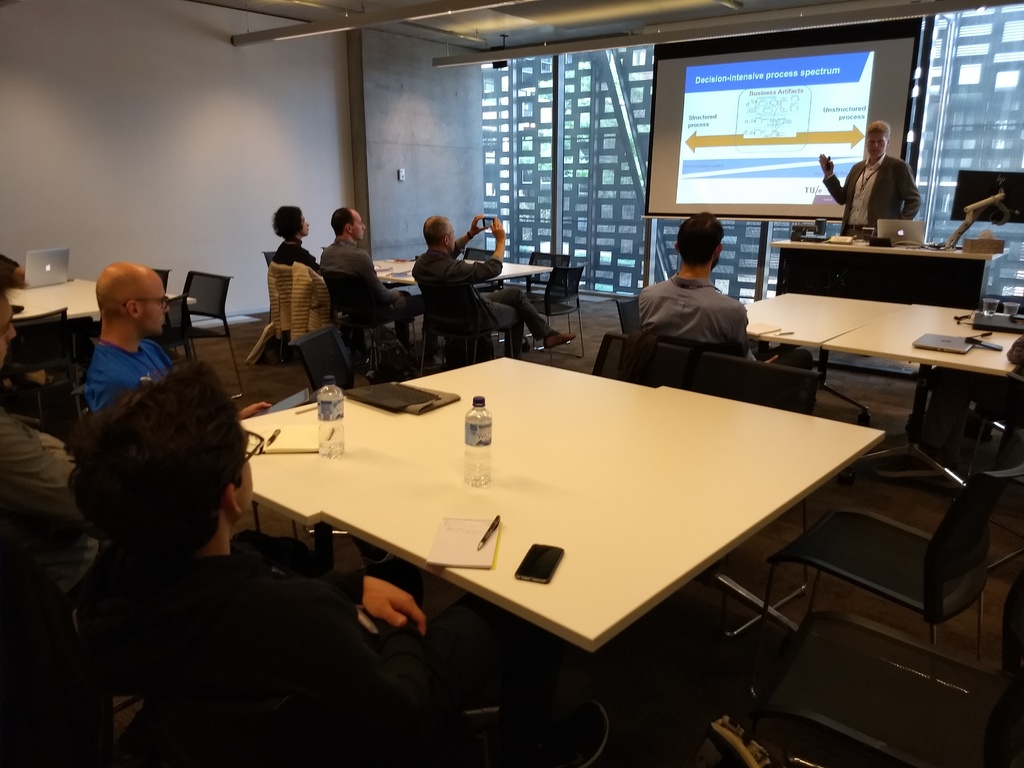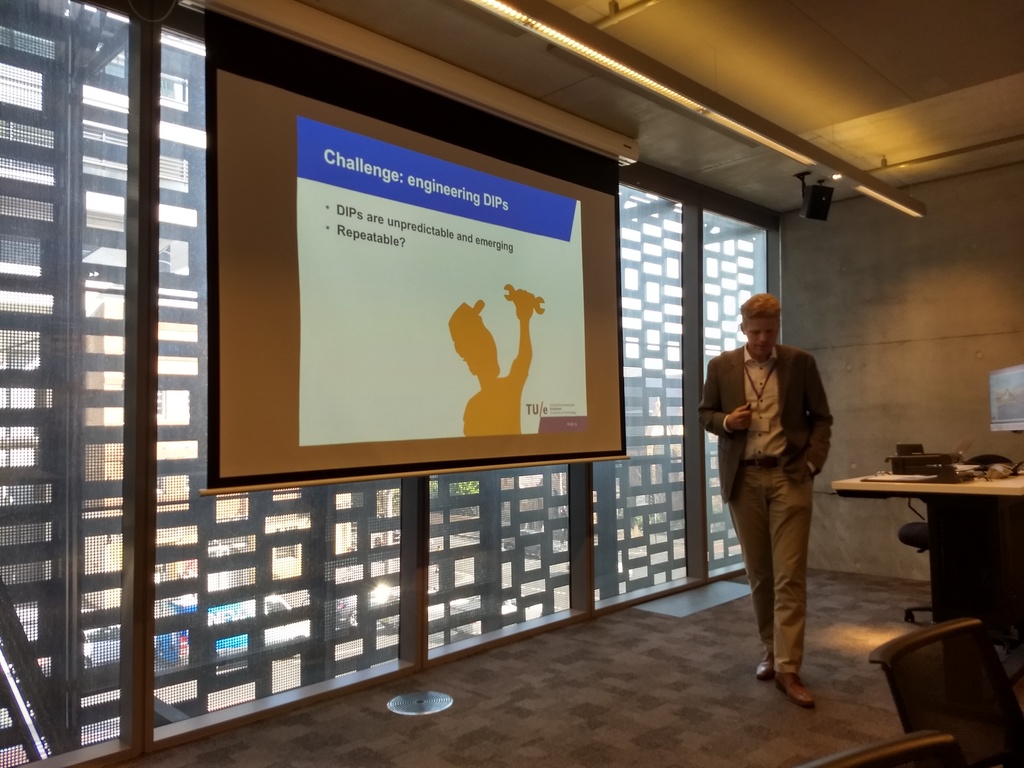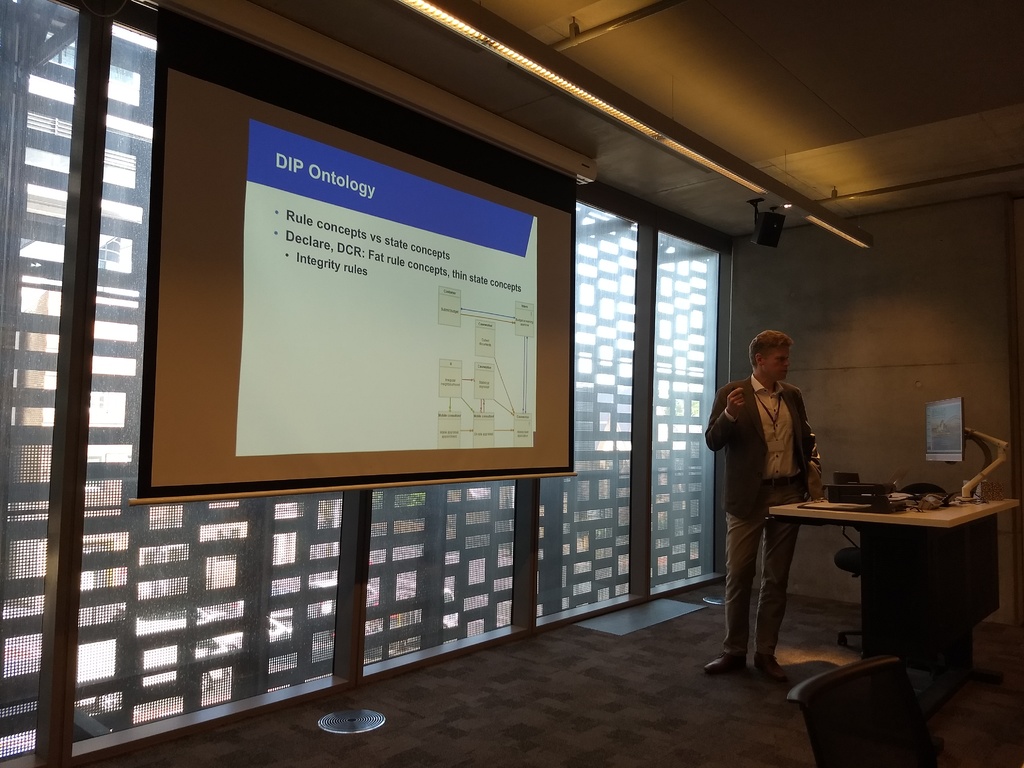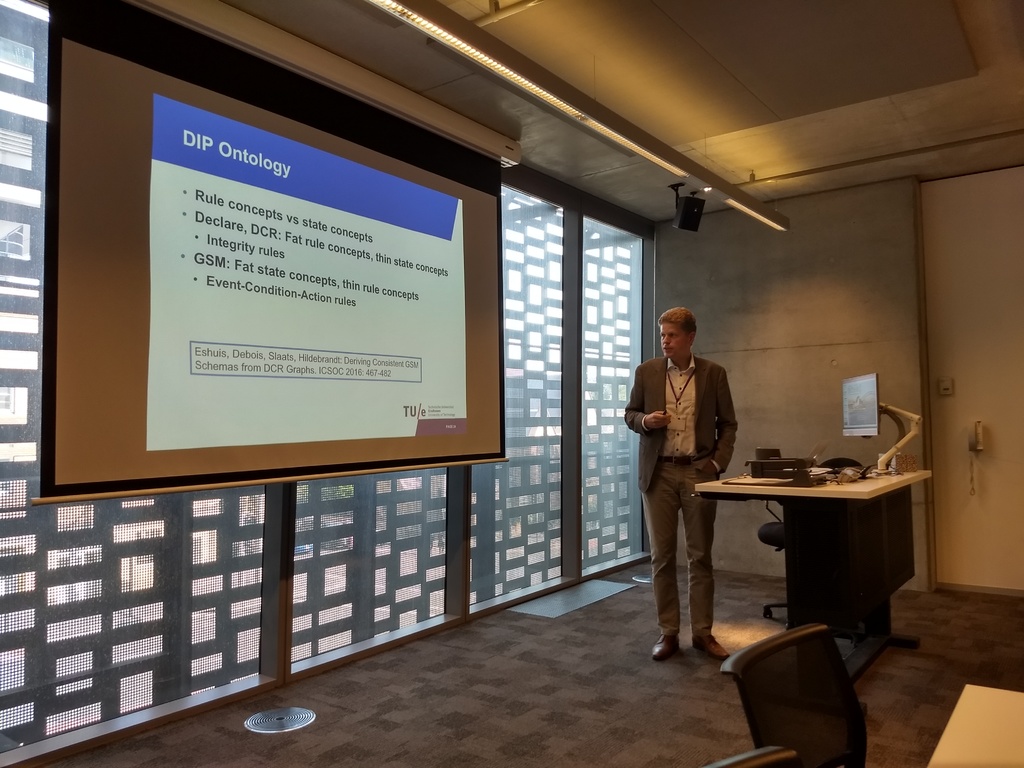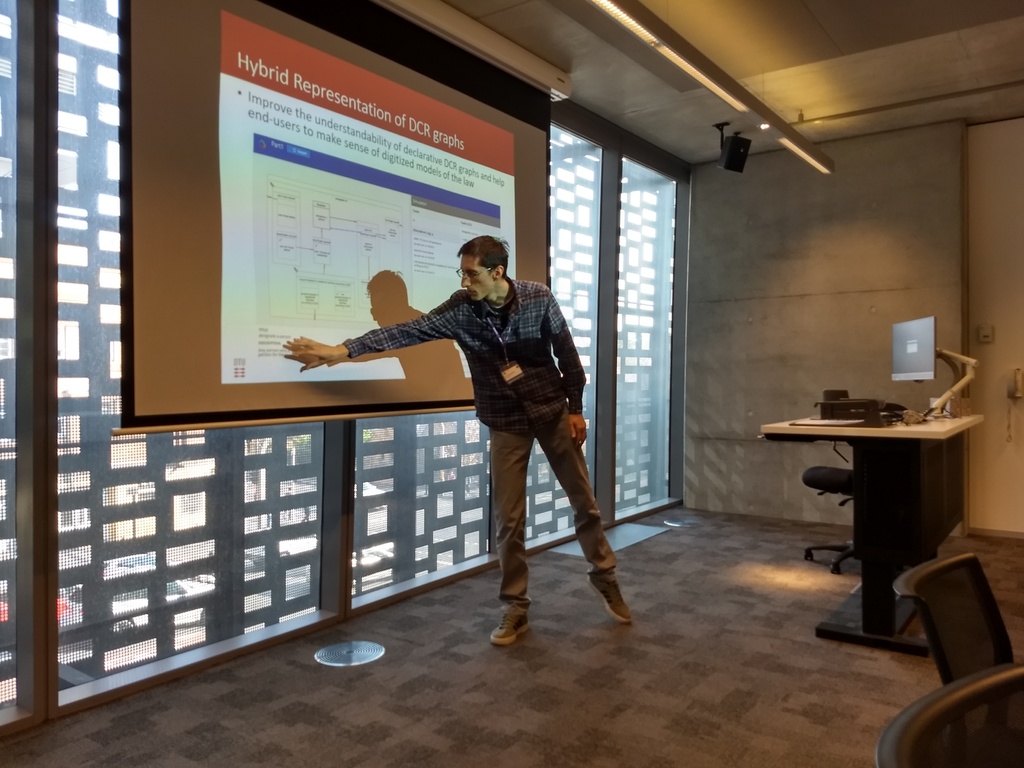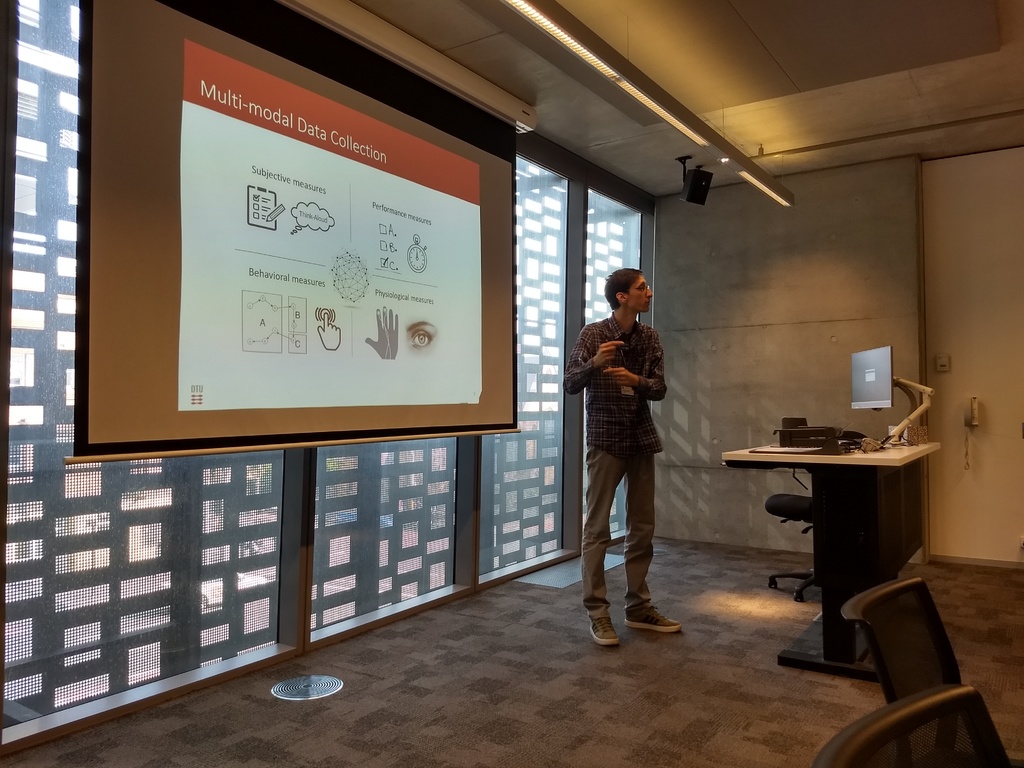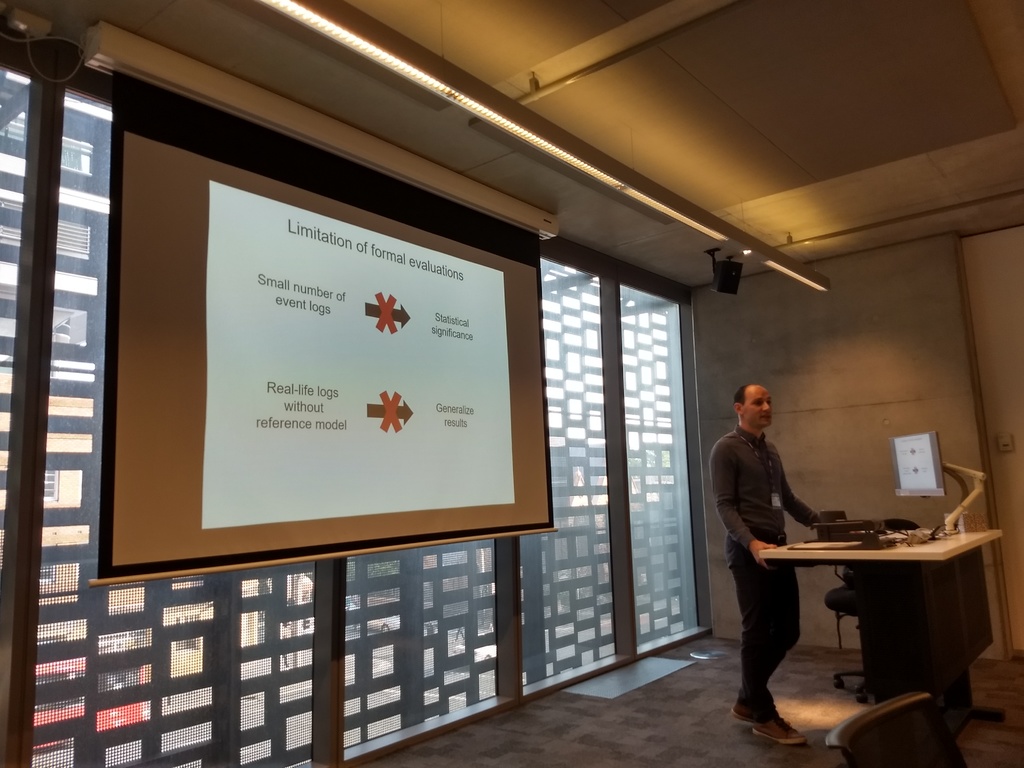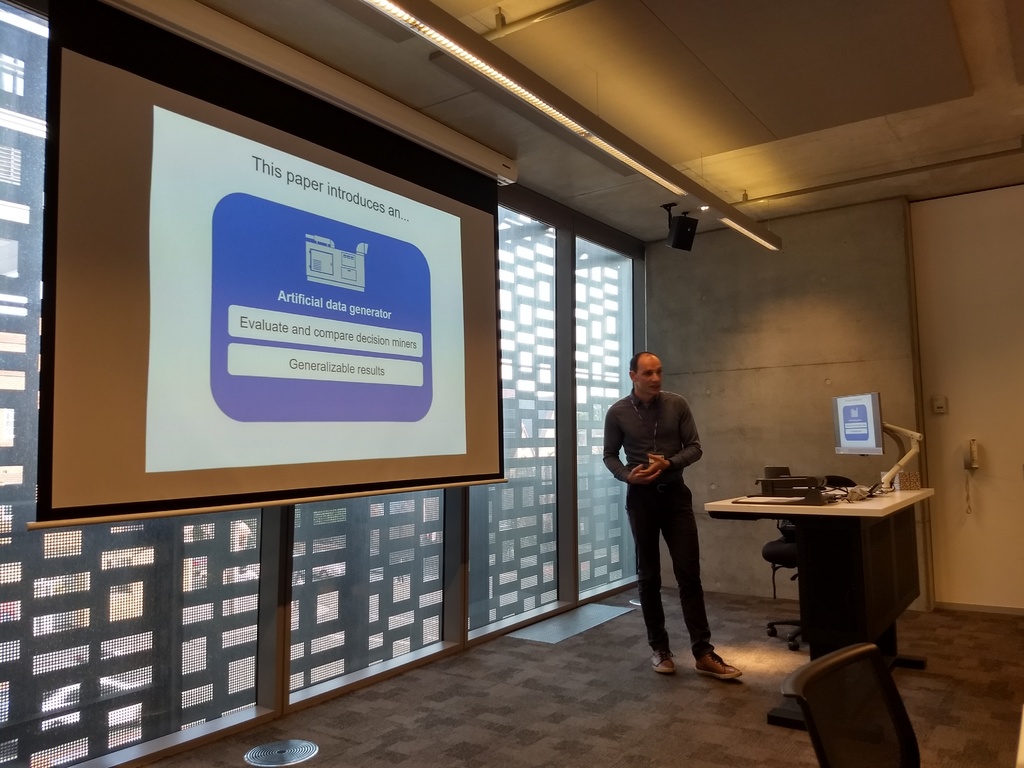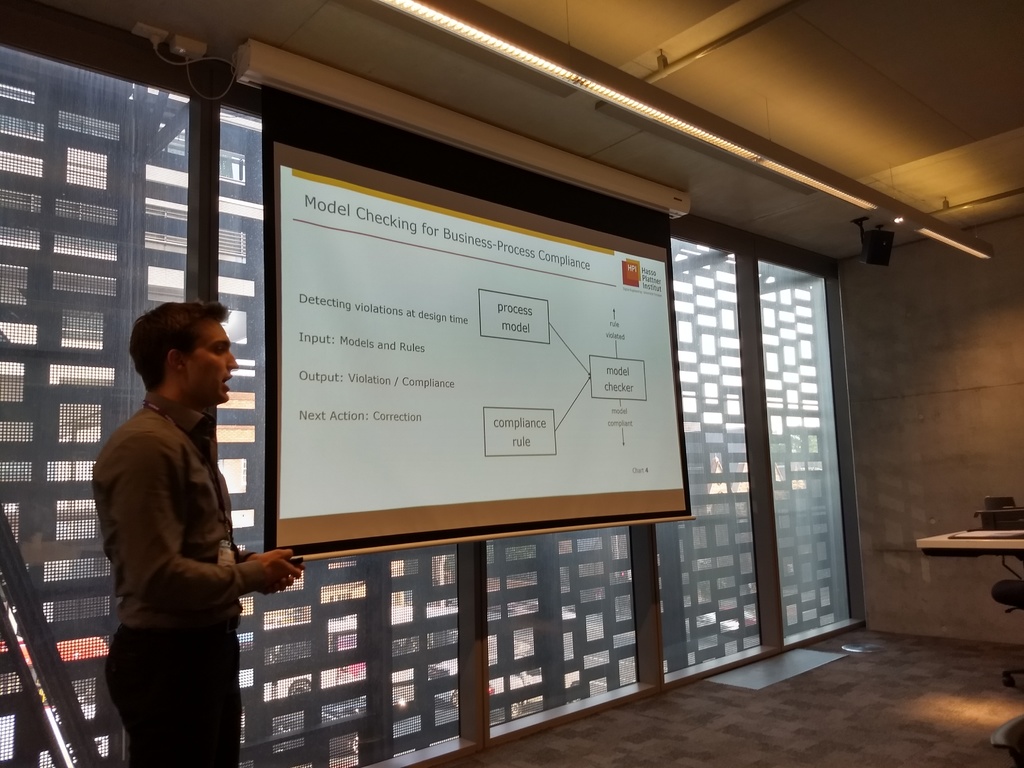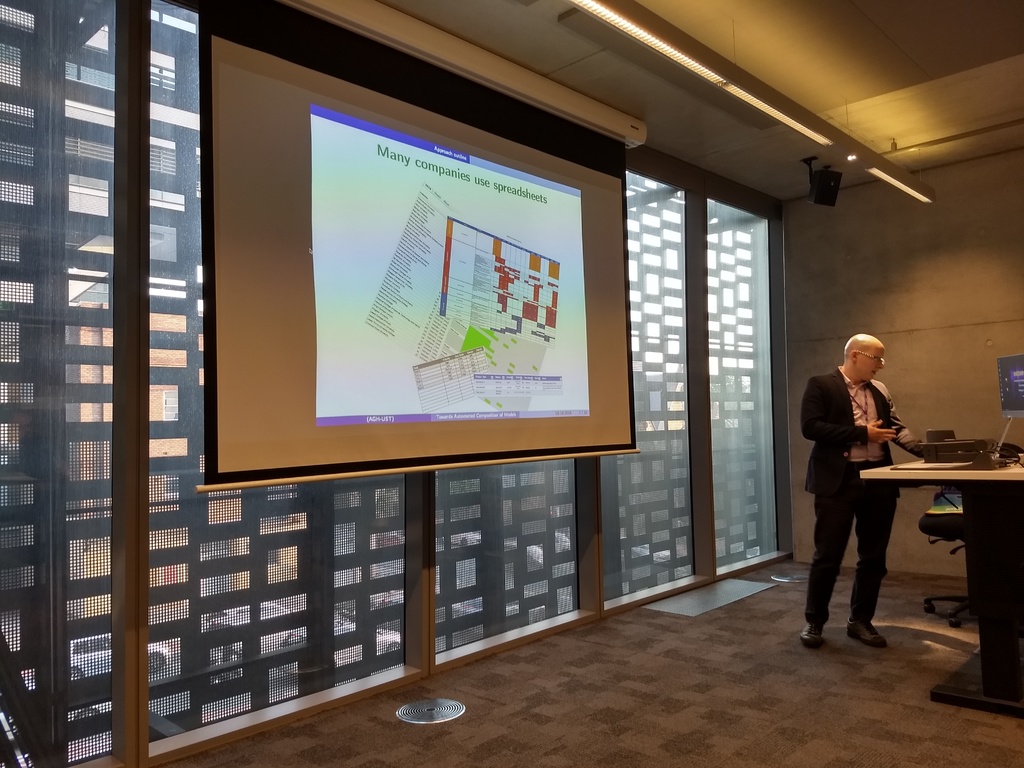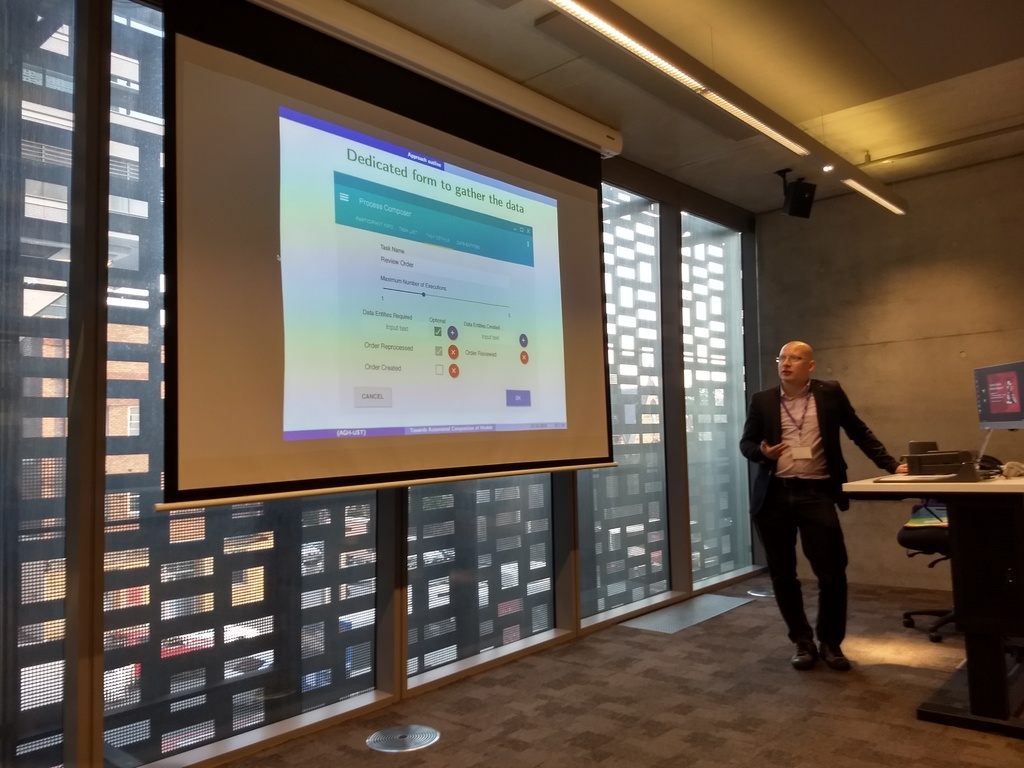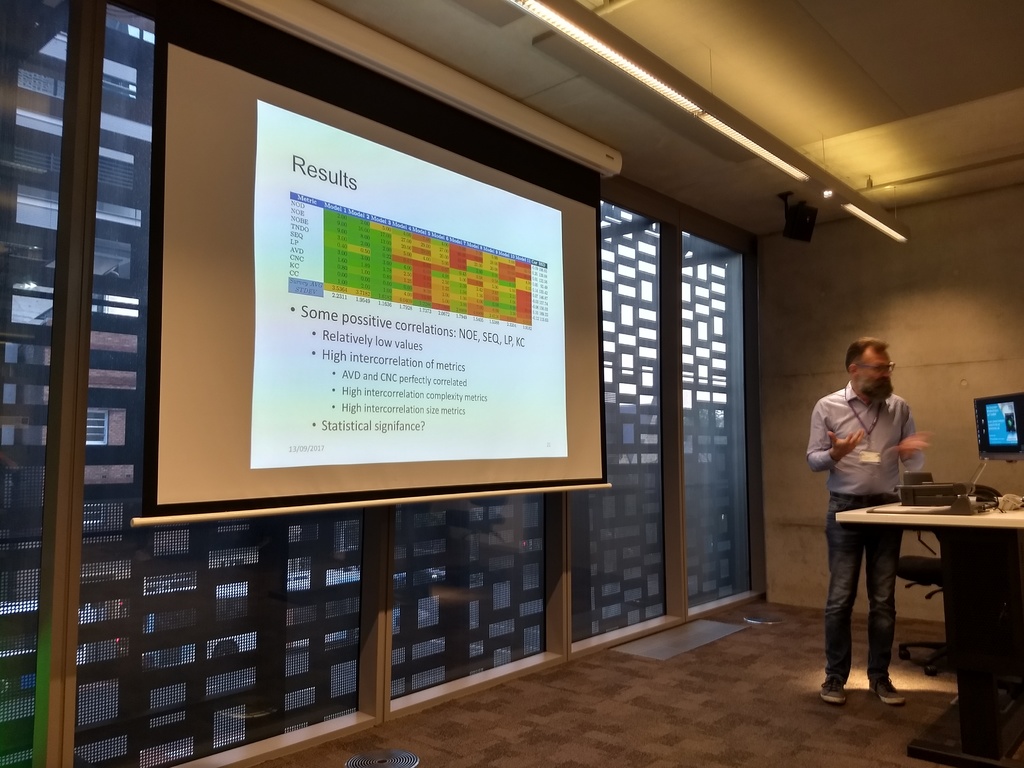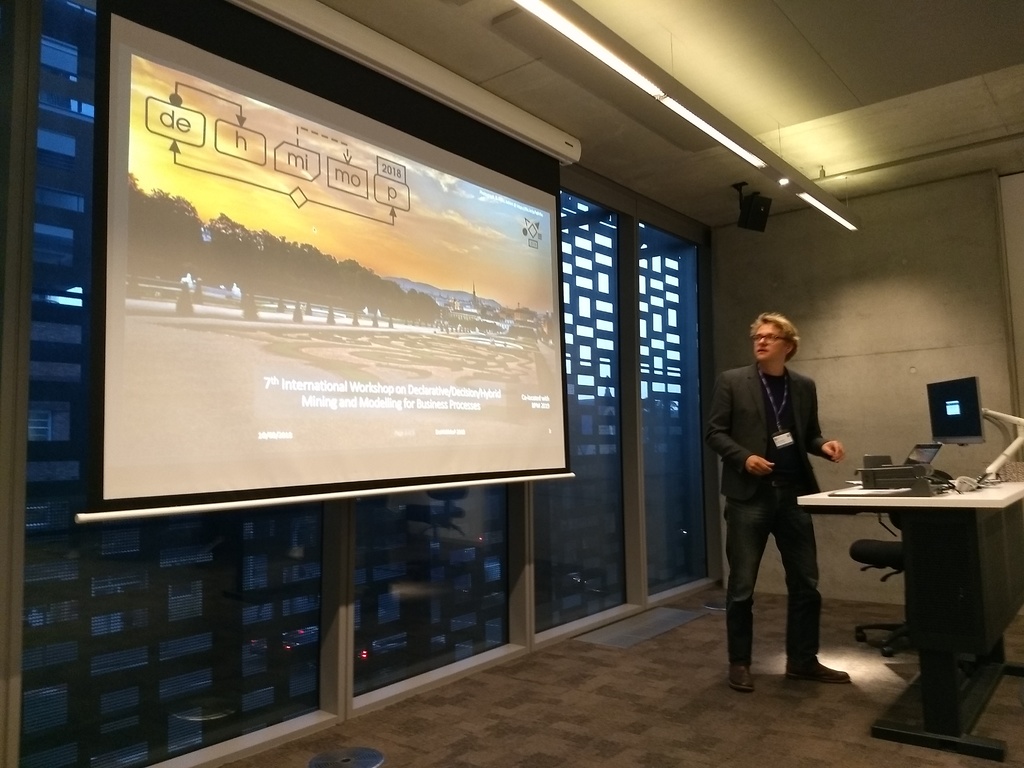About DeHMiMoP
Workshop Theme
Business Process Management (BPM) and its life cycle activities — design, modelling, execution, monitoring and optimization of business processes — have become a crucial part of business management. Most processes and business process models involve rules and decisions that describe the premises and possible outcomes of specific situations.
In particular, Knowledge-intensive Processes (KiPs) rely on such rules and decisions to guide the workflows of all process stakeholders. Examples include checking creditworthiness in a financial process, claim acceptance in an insurance process, eligibility decisions in social security, etc. These are highly variable situations, and the processes supporting them are very flexible by nature. This variability and flexibility calls for explicit statement of the underlying rules and decisions when describing such processes.
While traditional imperative notations such as BPMN excel at describing “happy paths”, they oftentimes turn out to be inadequate for modelling rules and decisions. Imperative notations indeed tend to describe possible behaviour as alternative, restricted flows. As a consequence, if an imperative model must encompass all possible variations, it becomes cluttered and thus impractical in highly flexible scenarios. Against this background, a new declarative modelling paradigm has been proposed that aims to directly capture the business rules or constraints underlying the process. Academic interest in the approach has grown in recent years, leading to the development of several declarative notations, such as Declare, DCR Graphs, DMN, CMMN, GSM, and eCRG.
However, declarative notations have struggled with industrial adoption. A common hypothesis is that the declarative paradigm requires modellers to think in radically new ways, which makes them hesitant to abandon the imperative approaches that they are used to. Preliminary research has indeed shown that users are by far more receptive of the idea of combining their imperative work practices with the new declarative approach. Grounded in these observations, a hybrid paradigm has been proposed, which aims to combine the strengths of both the imperative and declarative approaches.
This workshop aims at providing a platform for the discussion and introduction of new ideas related to the declarative and hybrid paradigms. We intend to extend the reach of the BPM audience towards the decisions and rules community and increase the integration between imperative, declarative and hybrid modelling perspectives. In this respect the approval of the new OMG standards DMN (Decision Model and Notation) and CMMN (Case Management Model and Notation) enables this cooperation between traditional imperative flow-based and declarative rule- and decision-based modelling.
Purpose of the workshop
We are interested in the application and challenges of decision- and rule-based modelling in all phases of the BPM lifecycle (identification, discovery, analysis, redesign, implementation and monitoring).The purpose of the workshop is therefore:
- To examine the relationship between rules, decisions and processes, including models; not only to model the process, but also to model the rules and decisions.
- To enhance rule and decision mining based on process data (e.g., event logs).
- To examine decision goals, structures, and their connection with business processes, in order to find a good integration between rule- and decision-based modelling and flow-based modelling.
- To examine standards (DMN, CMMN, BPMN) and their integration.
- To study how different process models can be designed to fit a decision process, according to various optimization criteria, such as throughput time, use of resources, etc.
- To study the integration between declarative models with traditional imperative models.
- To show best practices in separating process, rule and decision concerns.
Topics
Topics of interest include, but are not limited to:
Declarative and hybrid (process modelling) approaches
- Declarative notations (Declare, DCR Graphs, GSM, eCRG, …)
- Decision & goal notations (DMN, PDM, …)
- Declarative and hybrid modelling methodologies
- Process metrics
- Process maintenance and flexibility
- Human-centered and flexible processes
- Decision rules and processes
- Decision models and structures
- Formal analysis (e.g., expressiveness proofs) of declarative and hybrid notations
- Formal verification (e.g. model-checking and static analysis) of declarative and hybrid models
- Run-time adaptation of declarative and hybrid process models
Decision mining and declarative/hybrid process mining
- Decision mining
- Declarative process mining
- Hybrid process mining
- Data mining for decision and declarative/hybrid process analysis
- Rule mining for decision and declarative/hybrid process analysis
- Modeling challenges to combine static information of business
Applications of decision- and rule-modelling in BPM
- Goal-driven processes
- Knowledge-intensive processes
- Business process compliance
- Knowledge workflow management
- Usability and understandability studies
- Case studies
- Tools


